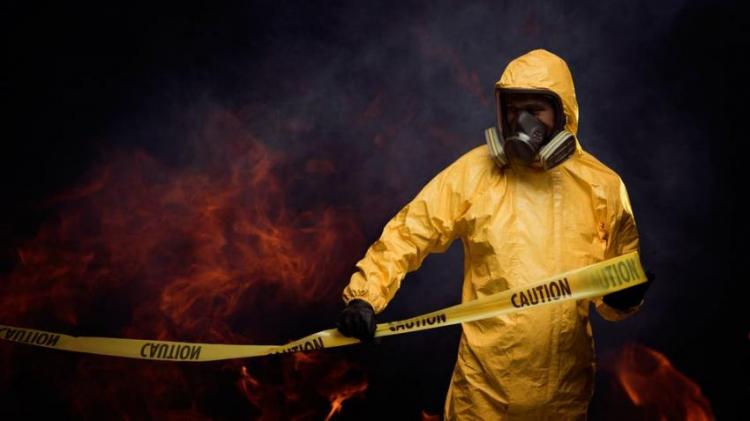After coronavirus, concerns extremist organizations will resort to bioterrorism
Cairo – North-Press Agency
Muhammad Abu Zeid
Theories suggest that coronavirus may have major impacts on the world to the extent that the views of various philosophers and sociologists are that "the post-coronavirus world will be quite different from what it has been before.” This is especially since the global system is fragile and its mechanism cannot keep up with the rapid confrontation of the pandemic that threatens the whole world.
While in the pandemic era, changes are expected to affect nature and shape of the global system in general, major international issues, and the priorities of states and the international community. It is a matter of debate the extent to which traditional issues will be affected by these expected changes, especially terrorism and armed organizations which were usually prioritized internationally.
Experts and analysts warn about the dependence of those organizations on new types of confrontation, benefiting from what COVID-19 has revealed, some of which include their resorting to biological warfare.
The report, which was published by the European Council a few days ago through the Counterterrorism Committee, directly sheds light on these concerns, and does not exclude the work of these organizations to "spread viruses" in the future, as a weapon that may be beneficial to them in light of the weakness in modern society that COVID-19 revealed. Therefore, biological warfare may be the "winning card" for these organizations in the coming period.
Days before, the report noted that armed organizations, which take advantage of all available opportunities, started testing their ability to launch biological attacks, especially since these attacks cause significant human and material damage as compared with traditional ones.
Monir Adib, an expert in Islamic movements affairs and global terrorism, claims that extremist organizations may soon resort to biological wars in the context of a battle that he described as "bio-terrorism” due to the human damage caused by such type of offensives.
According to the expert, the matter requires the necessity of the existence a "unified control system" rather than "training on these offensives" in order to confront these tactics.
These assumptions are reinforced by what ISIS official Abdel Nasser Qerdash revealed in his recent meetings with media after his arrest by Iraqi security forces. He stated that ISIS previously managed to manufacture toxic mustard gas in Iraq.
This brings back the previous attempts by al-Qaeda to test chemical weapons in Afghanistan by a person named Abu Khabab al-Masri, known as an al-Qaeda chemist, who was killed in a US drone strike in South Waziristan in Pakistan.
Khaled al-Za'afrani, expert and researcher in the extremist organizations and director of the Center for Political Islam Reviews, said that "When it took over and established a pseudo-state in Syria and Iraq, ISIS seriously thought about producing viral weapons of this type, and has set up impromptu factories for some pro-ISIS scientists and specialists from the former Soviet republics in particular. However, its collapse prevented it from achieving that at the time. This does not mean that the idea itself ended with the collapse of ISIS, and it does not prevent the possibility of working on it now in light of what coronavirus revealed."
According to al-Za'afarani, there are a number of scientists and science students belonging to ISIS that sought to test of viral and biological weapons. ISIS previously stole laboratories from central Asian countries.
In light of the current pandemic that threatens the whole world, the dreams of ISIS remain, and it is not out of the realm of possibility that it will proceed with this, especially after the disclosure of its manufacture of toxic mustard gas in Iraq.

